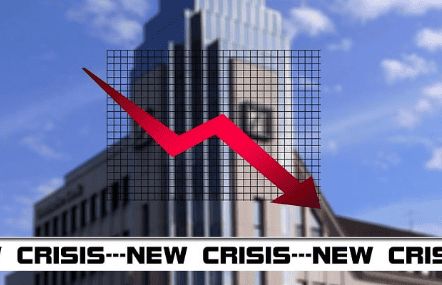Crisis Leadership Blog
Insights and perspectives on being the lighthouse during a crisis.
Kith at 10: A Decade of Building Crisis-Resilient Leaders
35 percent. Did I get your attention? It got mine. Only 35% of consulting startups make it to 10 years. Today, I’m proud to say that Kith is part of that 35%. That statistic says a lot. It says that what we do matters. It says that our clients have trusted us through...

Breaking the Crisis Wheel
Like my Kith colleagues, I cut my proverbial teeth in politics. Not as a candidate, but as a campaign staffer and, later, political consultant. Campaigns are great places to train for reputation management and crisis communications because everything is a crisis. The...

Hot Potato: What To Do When You’re Targeted
We’re taking you way back in the wayback machine to when I was a little kid in Canada. It was 1991 when Winnipeg-based Old Dutch Foods entered the Ontario market hoping to gain ground but instead faced a salty standoff. Rival Hostess Frito-Lay was accused of buying...

How a Clear Chain of Command Creates Strategic Speed in a Crisis
If you’ve ever seen the classic Abbott and Costello sketch "Who’s on First?," you know how quickly things can unravel when no one knows who’s doing what. It’s hilarious on stage, but in a real life crisis, that kind of confusion is anything but funny. Think back to...

When “Natural” Turns Toxic: The Cost of Broken Brand Promises
You may have heard recently that Perrier’s fizz has gone flat overseas. Parent company Nestlé Waters is facing a major environmental scandal after investigative reports revealed years of illegal waste dumping at its bottling sites, including massive landfills filled...
By definition, Kith means a cadre of peers who shape opinions and attitudes while instilling sophisticated habits for action. As a way to live this value, we like to share resources that are building blocks to good crisis management and can help you start the path of protecting your reputation.
More Recent Insights

I Speak Canadian (And What To Do If You Don’t)
I’m in the process of prepping a global crisis simulation for a multinational corporation. The other day, our brilliant client lead came to me and said “I can’t believe I’m bringing this up, but we need to add a Canada component. For the first time, we have to worry about the differences between the U.S. and Canada and how it affects our readiness. And you...

There’s No Waffling at Waffle House
As we approach the Easter and Passover "egg season," egg prices remain at an all-time high due to an ongoing shortage caused by the widespread avian flu. Businesses in the food and beverage industry that use a large volume of eggs – such as breakfast restaurants IHOP, Waffle House, and Denny’s – have been faced with a dilemma: keep their prices the same or...

Redundancy: Add Spare Capacity to Gain Speed in a Crisis
I’m fond of the old military saying: “two is one and one is none.” It reminds me to have a backup for critical equipment, like ensuring my spare tire is filled and ready to go before embarking on a cross-country road trip. It’s hard to run to an auto parts store if something goes wrong when I’m driving across Death Valley sans cell reception, for...

The Best Way to Handle Fear
There is no doubt about it … fear during a crisis is 100% real. Fear that you don’t have all the answers. Fear that you’ll show too much vulnerability to your team. Fear that your business won’t be able to recover from the issue at hand. Or fear that your efforts to right the ship may make the situation worse. If you’ve ever led a team through a crisis,...

When Controversy Snowballs into Crisis
The Washington Post has been shaking things up lately, especially in its opinion section. Owner Jeff Bezos just announced a shift to focus on "personal liberties and free markets," which led to the resignation of respected opinion editor David Shipley. This move, like many shakeups happening in our world these days, has caused controversy. Controversy...

(Un)Welcoming a One-Drink Minimum Policy
A few weeks ago, Starbucks announced that it would be ending its open-door policy, which allowed people to use the store's seating and restrooms even if they didn't make a purchase. The company stated that the change was made to "enhance" the customer experience. However, many critics have expressed that the move seems more focused on keeping out “the riff...

A Resolution Worth Sticking To: Crisis Vigilance in the New Year
With the holidays in the rearview mirror, many of us now turn to making personal resolutions for the new year. Whether it's training for a Tough Mudder, getting more sleep (hello, melatonin), saving more money for your dream retirement beach house, or remembering to call your elderly aunt at a more regular cadence, focusing on your intentions for the new...

When an Apology Isn’t an Apology
Saying “I’m sorry” shouldn’t be hard. When we say or do something that hurts someone else, then we as humans should own it, apologize for it, and try to make it right. But, many public apologies seem to miss this relatively easy target. Is someone sincerely apologizing when their apology apologizes for the wrong thing? Many publicly issued apologies rely...

Hanging in the Balance: Why and How Financial Leaders Should Prepare for the Unexpected
Any crisis comes with costs – economic costs, social costs, psychological costs – and long-term implications for your business’ bottom line, reputation, and team morale. No industry is immune to the threat of a crisis. Some sectors, including finance, face heightened risks due to the uncertainty and unpredictability of external factors such as the state...

When the Truth is Forced: Communicating when Caught off Guard
A number of companies have announced layoffs recently. One in particular had the news released because of a necessary regulatory filing. Marriott, the hotel giant based in Maryland, where it is the largest private-sector employer, is set to lay off hundreds of employees. While layoffs are not unusual, the fact that staff learned about the upcoming job...
The Kith Method
Good crisis management comes from a plan. Great crisis management comes from capability – and starts before you even smell smoke. That’s why we developed the Kith Method. We can help build and maintain a flexible capability that works for you.
Your reputation is an investment; time-consuming and costly to build and expensive to repair. Protect it.
